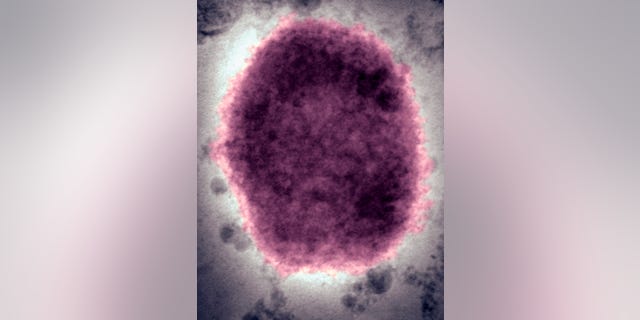Biden announces White House monkeypox response team with 3 states declaring emergencies
President Biden on Tuesday announced a team to coordinate and manage the White House’s monkeypox response efforts, as the virus spreads in cities and states across the nation.
The president named Robert Fenton, a regional administrator for the Federal Emergency Management Agency, to serve as White House National Monkeypox Response Coordinator, and Dr. Demetre Daskalakis to serve as the deputy coordinator.
“Fenton and Deaskalakis will lead the administration’s strategy and operations to combat the current monkeypox outbreak, including equitably increasing the availability of tests, vaccinations and treatments,” the White House said Tuesday.
Fenton has twice served as acting administrator of FEMA and has led “multiple challenging prevention, response and recovery operations” throughout his career.
NEW YORK CITY, ILLINOIS DECLARE STATE OF EMERGENCY OVER MONKEYPOX
Daskalakis, a leading public health expert, is currently the director of the Centers for Disease Control and Prevention Division of HIV Prevention. The White House said he “is an expert on health issues affecting the LGBTQIA+ communities.” Daskalakis previously oversaw management of infectious diseases for the New York City Department of Health and Mental Hygiene.
The White House said both officials played “critical roles in making COVID vaccines more accessible for underserved communities and closing the equity gap in adult vaccination rates.”
MONKEYPOX BY THE NUMBERS: FACTS ABOUT THE RARE VIRUS THAT’S CURRENTLY SPREADING
Chief medical advisor to the president, Dr. Anthony Fauci, added that the team “will allow the Biden administration to further accelerate and strengthen its monkeypox response.”
The two officials are expected to coordinate and manage response efforts across the White House and all federal departments and agencies, as well as work with local, state, national and international stakeholders on “tracking and fighting the spread” of monkeypox.
California, Illinois and New York have declared monkeypox states of emergencies.
The first case of monkeypox was confirmed in the United States on May 18.
So far, the Biden administration has made more than 1.1 million doses of vaccine available to states and cities across the country to control the spread of the virus, and has expanded testing capacity from 6,000 tests per week to more than 80,000 tests per week.
“Monkeypox is a rare disease caused by infection with the monkeypox virus. Monkeypox virus is part of the same family of viruses as variola virus, the virus that causes smallpox,” the CDC notes on its website.
MONKEYPOX: WHAT YOU MUST KNOW ABOUT THE VIRUS — AND HOW TO PROTECT YOURSELF
Monkeypox symptoms are milder than smallpox symptoms — and monkeypox is rarely fatal.
The virus is not related to chickenpox, says the CDC. Monkeypox was discovered in 1958 when two outbreaks of a pox-like disease showed up in monkeys kept for research.

Monkeypox symptoms include headache, muscle aches, exhaustion, fever, backache, the swelling of lymph nodes and chills.
Within one to three days, a rash and lesions can also develop, according to the CDC.
The CDC shares many healthy actions all of us can take to limit contact and transmission of the disease.
WHO DECLARES MONKEYPOX A GLOBAL HEALTH EMERGENCY
Among these tips: Avoid close, skin-to-skin contact with people who have a rash; do not touch the rash or scabs of anyone who has monkeypox; do not share eating utensils, plates or cups with someone who has the virus; do not handle or touch the bedding, towels or clothing of a person with monkeypox; wash your hands often with soap and water — or use an alcohol-based hand sanitizer.
The CDC recommends that those infected with monkeypox isolate at home, noting that very close personal contact is another cause of the rapid spread of the virus.
Anyone having an active rash or other symptoms should, “stay in a separate room or area away from people or pets you live with, when possible,” noted the CDC.
Fox News’ Deirdre Reilly contributed to this report.
Read the full article Here


